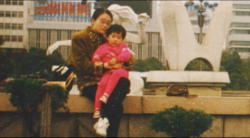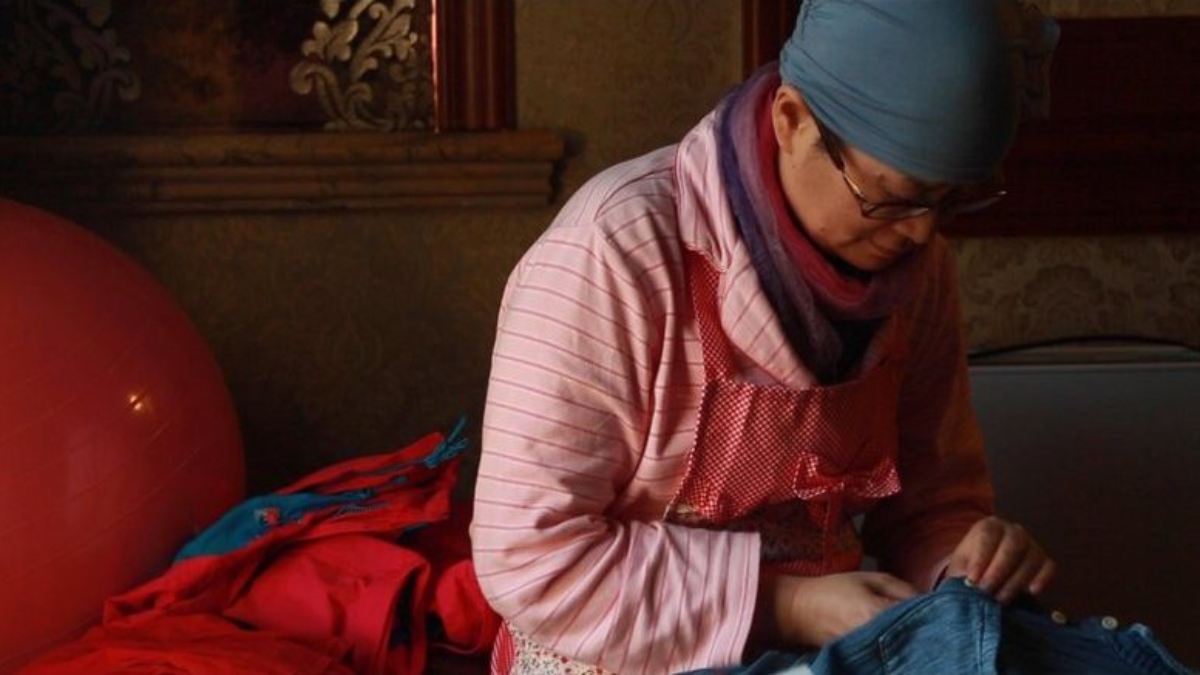The reflections on mortality and mother-daughter relationship of Siyi Chen
Siyi Chen wrote and directed the documentary “Dear Mother, I Meant to Write about Death (我们在黑夜的海上)” about the effects of her mother’s post-cancer treatment and aftermath on her (Siyi Chen) relationship with her Chinese mother (Shengmei Shen), backdropped against a society’s perspective on mortality, doctors, and patients.
The documentary’s striking opening scene hints at Shengmei’s present day demeanor, showing her standing next to a partially-dead-but-still-alive bamboo tree and asking Chen, behind the camera, to take a commemorative photo. Shengmei, a physician who underwent cancer treatment, clearly relates to the bamboo tree’s persistence in life and continued growth as she verbalizes her thoughts. “You’re a badass. Live well,” she tells the tree, smiling. Siyi takes her photo. The simple introduction of Shengmei along with Siyi’s voice-over addressing her mother sets up an anticipation for what follows – an honest, personal examination of death, the difficulty of conversing about it, its antithesis, and the impacts on those working to fight it.
Chen did not initially plan on creating such a personal film. She had planned on creating an observational film about the Southeast Chinese hospital where her mother worked for 30 years, in which her mother would have simply had a role in the film. However, the unexpected personal event of her mother’s cancer influenced her decision to pursue something different. Chen’s reflections on her childhood, spent both in the hospital with her mother and in school, and on her persistent questions about the fear and her own perspective of death push the narrative forward, while additional anecdotes from doctors on their field and the risks they face from stress, illness, and patients’ grieving family members lend further context to the cultural perspectives on illness and death. Interestingly, the film never explicitly discusses the possibility of Shengmei passing – perhaps mirroring one of the elements explored in the film, that the topic of death is so uncomfortable and taboo for a household that Shengmei avoids telling Chen about her diagnosis and subsequent surgery.

The project was six years in the making. The film, primarily narrated by Chen, is interspersed with clips of her mother post-treatment, her childhood, present-day doctors and patients in the hospital, and idyllic landscapes of China. Siyi’s background in journalism, observational style, and desire to lean into her emotions within the narrative blend well cinematically – during voice-overs that share Chen’s thoughts of her childhood, the camera notably points to its subjects at waist-level, demonstrating a child’s point-of-view; long tracking shots and quick close-ups of subjects, such as a praying couple at the hospital, set the scene. The sound design provides a thoughtfulness – gentle percussion of bells and chimes, sounds of nature, and beeping of hospital monitors and rustling of uniforms emphasize each moment of discussion and support immersion into the story.
The moments are not without tension and displays of pain – from doctors working to relieve their patients’ suffering, anxious patients and their family members, and Chen’s contemplation of and concern for her mother.
“Filming her when she was going through treatment gave us something else to look at and talk about, without having to think about the elephant in the room all of the time…so [filming] was kind of like a good distraction. And I’m very grateful for making this movie because it allowed me to process a lot of my feelings, not just about her treatment but I also look back at my upbringing at the hospital and how it shaped my personality and how that shaped her.” In making the film, Chen was simply following the natural inclination to look back at some point in one’s life.
The film does conclude on an optimistic note, with Chen sharing that her mother is more vibrant and active, organizing weekly activities for cancer survivors in their hometown, and how both she and her mother now have a more neutral perspective towards the fear of death than before –- a fear that does and will remain, but will not take away from them the joys of being alive.
On her mother’s condition now, Chen had happy news to share. “The film was just the beginning of the change of our relationship. My mom really changed a lot after treatment. Now she’s training to be a therapist … and wants to talk about feelings! She’s also running a peer support group now … I just feel like she’s much more open and she’s really being the person she wants to be.”
“Dear Mother, I Meant to Write about Death (我们在黑夜的海上)” screened at the 46th Asian American International Film Festival in addition to several other international film festivals.

